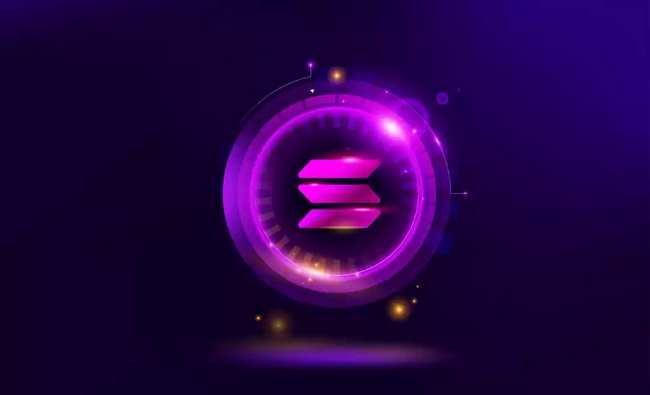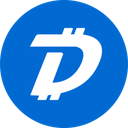-
 Bitcoin
Bitcoin $82,875.2303
0.93% -
 Ethereum
Ethereum $1,789.0401
0.22% -
 Tether USDt
Tether USDt $0.9995
-0.02% -
 XRP
XRP $2.1059
4.58% -
 BNB
BNB $592.7679
0.66% -
 Solana
Solana $118.6582
3.57% -
 USDC
USDC $0.9997
-0.02% -
 Dogecoin
Dogecoin $0.1675
5.44% -
 Cardano
Cardano $0.6530
3.44% -
 TRON
TRON $0.2399
2.34% -
 UNUS SED LEO
UNUS SED LEO $9.4576
0.78% -
 Chainlink
Chainlink $12.7169
1.25% -
 Toncoin
Toncoin $3.3640
-6.14% -
 Stellar
Stellar $0.2571
0.95% -
 Avalanche
Avalanche $17.7970
-1.23% -
 Sui
Sui $2.2295
-0.93% -
 Shiba Inu
Shiba Inu $0.0...01212
-0.69% -
 Hedera
Hedera $0.1639
2.15% -
 Litecoin
Litecoin $84.1735
2.90% -
 Polkadot
Polkadot $4.0448
1.80% -
 MANTRA
MANTRA $6.2926
-1.45% -
 Bitcoin Cash
Bitcoin Cash $297.0532
0.15% -
 Bitget Token
Bitget Token $4.5419
0.82% -
 Dai
Dai $1.0000
-0.01% -
 Ethena USDe
Ethena USDe $0.9993
-0.05% -
 Monero
Monero $216.5920
3.74% -
 Hyperliquid
Hyperliquid $11.5216
0.25% -
 Uniswap
Uniswap $5.8171
0.50% -
 Pi
Pi $0.5289
-7.26% -
 Pepe
Pepe $0.0...07047
7.02%
What can SOL coins be used for? A comprehensive analysis of the application scenarios of SOL coins
SOL is a versatile cryptocurrency, enabling transaction fees, staking, smart contract execution, governance, payment gateway integration, DeFi, NFT and gaming utilization, data storage, application payments, and investment.
Oct 06, 2024 at 11:53 am

What Can SOL Coins Be Used For? A Comprehensive Analysis of the Application Scenarios of SOL Coins
1. Transaction Fee Payment:
SOL coins serve as the native currency of the Solana blockchain. They are primarily used to pay transaction fees for interactions with the network, such as sending or receiving tokens and executing smart contracts.
2. Staking:
SOL coins can be staked to validators in the Solana network. By staking their coins, validators secure the network and process transactions. In return, they receive rewards in the form of SOL coins.
3. Smart Contract Execution:
Smart contracts on the Solana blockchain require gas fees for execution. These fees are typically paid using SOL coins.
4. Participation in Governance:
SOL coins grant holders the right to participate in the governance of the Solana blockchain. They can vote on proposals to determine the future direction of the network.
5. Payment Gateway Integration:
Solana-based payment gateways allow merchants to accept SOL coins as payment for goods and services.
6. DeFi Applications:
SOL coins are used within decentralized finance (DeFi) applications built on the Solana blockchain. These applications include decentralized exchanges, lending protocols, and yield farming platforms.
7. NFTs and Gaming:
SOL coins are gaining popularity in the non-fungible token (NFT) and gaming industries. They are used to purchase digital collectibles, in-game assets, and access exclusive content.
8. Data Storage and Compute:
The Solana network offers a decentralized data storage and compute platform. SOL coins can be used to pay for storage space and compute resources.
9. Payment for Applications:
Solana-based applications may charge users SOL coins for access to premium features or services.
10. Investment and Speculation:
SOL coins are listed on various cryptocurrency exchanges and can be bought, sold, and traded for investment purposes or speculation.
In summary, SOL coins serve as the transactional currency, gas fee payment method, staking mechanism, governance token, and payment gateway integration tool within the Solana ecosystem. They also facilitate smart contract execution, participation in DeFi applications, and utilization of NFT and gaming platforms. Additionally, they provide access to data storage and compute resources, and enable investment and speculation opportunities.
Disclaimer:info@kdj.com
The information provided is not trading advice. kdj.com does not assume any responsibility for any investments made based on the information provided in this article. Cryptocurrencies are highly volatile and it is highly recommended that you invest with caution after thorough research!
If you believe that the content used on this website infringes your copyright, please contact us immediately (info@kdj.com) and we will delete it promptly.
- Bitcoin (BTC) Price Breaks Below 50-Week EMA, Increasing Risk of Drop to $45K
- 2025-04-05 01:00:12
- Market makers’ blockchain transactions point to a potential $3 million arbitrage opportunity related to the depegging of the FDUSD stablecoin.
- 2025-04-05 01:00:12
- Cryptocurrency Listings Have Outperformed Traditional Stock Listings
- 2025-04-05 00:55:11
- SHIB Army Dynamics Shift: Short-Term Market Participants Exit, Long-Term Holders Grow
- 2025-04-05 00:55:11
- As the biggest and most popular cryptocurrency, it's a surprise to nobody that Bitcoin (CRYPTO: BTC)
- 2025-04-05 00:50:11
- Binance Removes Seed Tags, Expands Monitoring List, Sparking Investor Concerns
- 2025-04-05 00:50:11
Related knowledge

What is Ethereum’s Slashing mechanism and how to punish malicious behavior?
Feb 20,2025 at 03:08am
Key PointsOverview of slashingDifferent types of slashing in EthereumIncentives and consequences of slashingIdentifying and reporting slashed validatorsOngoing discussions and potential improvementsEthereum's Slashing Mechanism: Punishing Malicious BehaviorEthereum's slashing mechanism is an essential tool for ensuring network security and punishing mal...

What is the verifier node of Ethereum and how to become a verifier?
Feb 19,2025 at 06:00pm
The Verifier Node of Ethereum: A Comprehensive GuideKey Points:What is a Verifier Node?How to Become a Verifier NodeResponsibilities and Rewards of a Verifier NodeMinimum Requirements for Becoming a Verifier NodePotential Difficulties in Running a Verifier Node1. What is a Verifier Node?A Verifier Node is an independent entity on the Ethereum network th...

What is Ethereum’s staking, and how to participate and earn money?
Feb 19,2025 at 04:37pm
Key Points:Understanding Ethereum's Staking MechanismSteps to Participate in StakingBenefits and Rewards of StakingSecurity and Risk ConsiderationsTechnical Requirements and Hardware OptionsPotential Challenges and Troubleshooting TipsFAQs on Ethereum StakingWhat is Ethereum's Staking?Proof-of-Stake (PoS) is a consensus mechanism used in blockchain netw...

What is Ethereum’s DAO (Decentralized Autonomous Organization) and how does it work?
Feb 20,2025 at 03:12am
Key PointsDefinition and Structure of a DAOGovernance and Decision-Making in DAOsBenefits and Use Cases of DAOsChallenges and Limitations of DAOsWhat is Ethereum's DAO (Decentralized Autonomous Organization) and How Does It Work?Definition and Structure of a DAOA Decentralized Autonomous Organization (DAO) is an innovative governance and management fram...

What is Ethereum's multi-signature wallet and how to improve security?
Feb 20,2025 at 02:18pm
Key Points:Understanding the Concept of a Multi-Signature WalletBenefits and Drawbacks of Multisig WalletsRequirements for Setting Up a Multisig WalletStep-by-Step Guide to Generating a Multisig WalletImplementing Strategies for Enhanced Security1. Understanding the Concept of a Multi-Signature WalletA multi-signature (multisig) wallet in the Ethereum e...

What is Ethereum's oracle and how to provide data for smart contracts?
Feb 21,2025 at 01:30am
Key Points:Understanding the concept of oracles in EthereumExploring different types of oraclesDetailed guide on how to provide data for smart contractsAddressing potential challenges and considerationsWhat is Ethereum's Oracle?Oracles are crucial components in the Ethereum ecosystem, enabling smart contracts to access real-world data and off-chain even...

What is Ethereum’s Slashing mechanism and how to punish malicious behavior?
Feb 20,2025 at 03:08am
Key PointsOverview of slashingDifferent types of slashing in EthereumIncentives and consequences of slashingIdentifying and reporting slashed validatorsOngoing discussions and potential improvementsEthereum's Slashing Mechanism: Punishing Malicious BehaviorEthereum's slashing mechanism is an essential tool for ensuring network security and punishing mal...

What is the verifier node of Ethereum and how to become a verifier?
Feb 19,2025 at 06:00pm
The Verifier Node of Ethereum: A Comprehensive GuideKey Points:What is a Verifier Node?How to Become a Verifier NodeResponsibilities and Rewards of a Verifier NodeMinimum Requirements for Becoming a Verifier NodePotential Difficulties in Running a Verifier Node1. What is a Verifier Node?A Verifier Node is an independent entity on the Ethereum network th...

What is Ethereum’s staking, and how to participate and earn money?
Feb 19,2025 at 04:37pm
Key Points:Understanding Ethereum's Staking MechanismSteps to Participate in StakingBenefits and Rewards of StakingSecurity and Risk ConsiderationsTechnical Requirements and Hardware OptionsPotential Challenges and Troubleshooting TipsFAQs on Ethereum StakingWhat is Ethereum's Staking?Proof-of-Stake (PoS) is a consensus mechanism used in blockchain netw...

What is Ethereum’s DAO (Decentralized Autonomous Organization) and how does it work?
Feb 20,2025 at 03:12am
Key PointsDefinition and Structure of a DAOGovernance and Decision-Making in DAOsBenefits and Use Cases of DAOsChallenges and Limitations of DAOsWhat is Ethereum's DAO (Decentralized Autonomous Organization) and How Does It Work?Definition and Structure of a DAOA Decentralized Autonomous Organization (DAO) is an innovative governance and management fram...

What is Ethereum's multi-signature wallet and how to improve security?
Feb 20,2025 at 02:18pm
Key Points:Understanding the Concept of a Multi-Signature WalletBenefits and Drawbacks of Multisig WalletsRequirements for Setting Up a Multisig WalletStep-by-Step Guide to Generating a Multisig WalletImplementing Strategies for Enhanced Security1. Understanding the Concept of a Multi-Signature WalletA multi-signature (multisig) wallet in the Ethereum e...

What is Ethereum's oracle and how to provide data for smart contracts?
Feb 21,2025 at 01:30am
Key Points:Understanding the concept of oracles in EthereumExploring different types of oraclesDetailed guide on how to provide data for smart contractsAddressing potential challenges and considerationsWhat is Ethereum's Oracle?Oracles are crucial components in the Ethereum ecosystem, enabling smart contracts to access real-world data and off-chain even...
See all articles




















































































